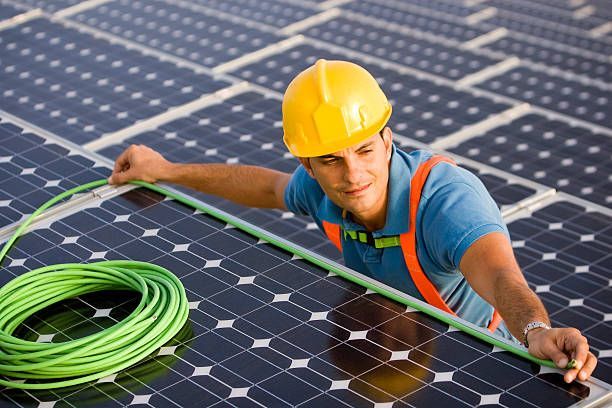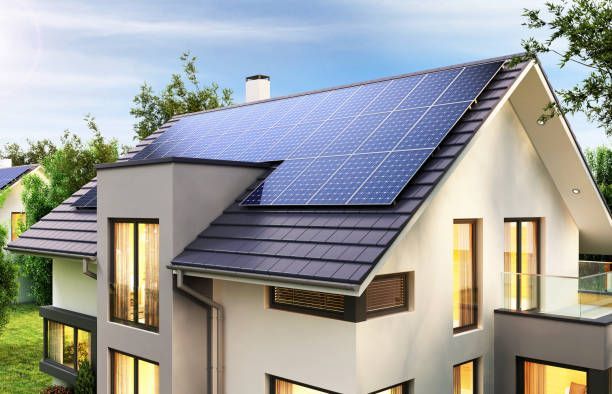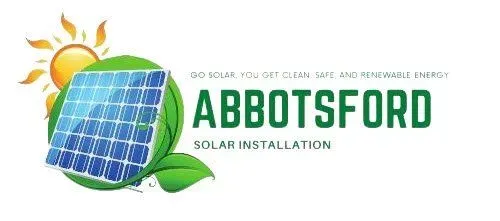Abbotsford Solar Installation
Solar Panel Installation For Home: Five Factors To Consider
Solar panels have gained immense popularity as a sustainable and cost-effective way to generate clean energy for your home. The benefits of harnessing solar power are numerous, from reducing your electricity bills to reducing your carbon footprint.
Considering a solar panel installation for your home is a promising and forward-thinking decision. But before diving headfirst into a solar panel installation project, consult first with 'solar system installers near me.' Learn the five considerations when installing solar panels for your home.

Factor 1: Your Home's Solar Potential
The first step in your solar panel installation journey is to assess your home's solar potential. Not every home is suitable for solar panels; factors like location, orientation, and shading can significantly impact their efficiency.
To help you evaluate your home's solar potential, consider the following:
-
Location and Climate
Determine the location's sunlight using your region's Global Horizontal Irradiance (GHI) data. Look for areas with high GHI values, as they generally receive more sunlight throughout the year.
-
Roof Orientation
In the northern part, the optimal direction for your solar panels is facing south. While in the southern hemisphere, they should ideally point north. Solar panels facing east or west can still be effective but will produce less energy. If your roof doesn't have the optimal orientation, adjustments can be made to optimize panel positioning.
-
Roof Condition
Solar panels last 25 years or more, so your roof should have a similar lifespan. If your roof needs repairs or replacement, addressing those issues before installing solar panels is wise to avoid complications.
-
Shading
Shading from trees, buildings, or other obstructions can significantly impact the efficiency of your solar panels. A shading analysis will help determine whether you need to trim or remove trees or adjust panel placement to minimize shading.
Factor 2: Energy Consumption and Needs
Understanding your household's energy consumption and needs is important. Below are some aspects to consider:
-
Current Energy Consumption
Review your past energy bills to gauge your current electricity consumption. This data will help you determine the size of the solar panel system you'll need. Consider seasonal variations in energy use and whether you plan to increase your electricity demand in the future.
-
Energy Efficiency
Before investing in solar panels, making your home as energy-efficient as possible is a good idea. Upgrading insulation, sealing gaps, and replacing outdated appliances can reduce energy consumption, allowing you to install a smaller solar panel system.
-
Future Energy Needs
Consider any lifestyle changes or additions to your household that could increase your energy needs in the future. Are you planning to purchase electric appliances or expand your home? Plan for these changes when sizing your solar panel system.
Factor 3: Financial Considerations
Solar panel installation represents a significant financial investment, and evaluating the costs and financial incentives involved is crucial. Let's break down the financial considerations:
-
Cost of Installation
This can vary depending on factors like system size, quality of equipment, and installation complexity. Get quotes from reliable solar installers and compare the estimates. Remember to consider additional costs like permits and grid connection fees.
-
Incentives and Rebates
Canada offers incentives and rebates to encourage solar panel installations. These can help offset the upfront costs and improve the project's financial feasibility. Research the incentives available in your area and make the most of them.
-
Future Energy Needs
Before investing in solar panels, making your home as energy-efficient as possible is a good idea. Upgrading insulation, sealing gaps, and replacing outdated appliances can reduce energy consumption.
Solar Financing Options
There are several financing options for solar panel installations, including:
-
Cash Purchase
Paying for your solar panel system upfront provides the highest long-term savings.
-
Solar Loans
Borrow money to cover the installation cost and repay it over time, potentially with interest.
-
Solar Lease
Lease the solar panel system, typically requiring little to no upfront cost but with ongoing lease payments
-
Power Purchase Agreement (PPA)
Opt for paying only for the electricity produced by the solar panels without acquiring the entire system.
-
Return on Investment (ROI)
Calculate the potential ROI of your solar panel system to determine how long it will take to recoup your investment through energy savings.

Factor 4: Solar Panel Technology and Equipment
The right solar panel technology and equipment are essential for a successful installation. There are various types of solar panels and inverters, each with advantages and disadvantages.
-
Solar Panels
Different types include monocrystalline, polycrystalline, and thin-film panels, each with varying efficiency and cost.
-
Inverters
Convert direct current (DC) from the panels into alternating current (AC) for use in your home. Options include string, micro, and power optimizers.
-
Battery Storage
Optional for storing excess energy for later use. Batteries like lithium-ion or lead-acid are available.
-
Mounting and Racking
Ensure secure and weather-resistant mounting for the panels, which can be flush-mounted or tilted for optimized positioning.
Factor 5: Solar Panel Installation and Maintenance
Finally, proper installation and ongoing care are essential for the efficiency and longevity of your solar panel system. The following are some key points to keep in mind:
-
Professional Installation
Hire a professional solar installer to ensure the correct placement and connection of solar panels and equipment. Choose a reputable and certified installer with experience in residential solar installations.
-
Permits and Regulations
Before installation, you must obtain the necessary permits and approvals from your local government or utility company. Ensure you comply with all regulations to avoid potential issues in the future.
-
Monitoring and Maintenance
Regular monitoring and maintenance are essential to keep your solar panel system in top shape. This includes cleaning the panels, checking for damage, and monitoring energy production. Some systems come with built-in monitoring features, while others can require third-party solutions.
-
Warranties and Service
Review the warranties and service agreements your solar panel manufacturer and installer provided. Knowing what's covered and for how long will give you peace of mind in case of unexpected issues.
Call Local Solar Panel Installers For Your Solar Needs
Solar panel installation for your home is an eco-friendly and financially sound investment. Consider the factors mentioned above to meet your energy needs. Remember, every home is unique, so consult with solar professionals to tailor your solar panel installation to your specific requirements.
For top-tier solar services that prioritize quality, efficiency, and sustainability, get in touch with us at Abbotsford Solar Installation.
Solar panels are not just a solution for today but an investment for a brighter and greener future. Call Abbotsford Solar Installation today.
Frequently Asked Questions
-
Why Is the Location Important When Considering Solar Panel Installation?
Location is important it affects the amount of sunlight your solar panels will receive. The more sunlight, the more energy your panels can generate. Factors like latitude, climate, and shading should be taken into account.
-
How Does the Condition of My Roof Impact Solar Panel Installation?
The roof's condition is important because it determines if it can support the weight of solar panels and needs any repairs or upgrades. A sturdy and well-maintained roof is essential for a successful installation.
-
Are There Maintenance Requirements for Solar Panels on a Home?
Solar panels generally require minimal maintenance. Regular cleaning and occasional inspections are advisable to ensure optimal performance. Some systems come with monitoring tools to make maintenance easier.
Go Solar. You get Clean, Safe, and Renewable Energy.

CONTACT US
36092B Regal Pkwy, Abbotsford, BC
V3G 1L1, Canada
USEFUL LINKS
Book a Service
We will get back to you as soon as possible.
Please try again later.
All Rights Reserved | Abbotsford Solar Installation |